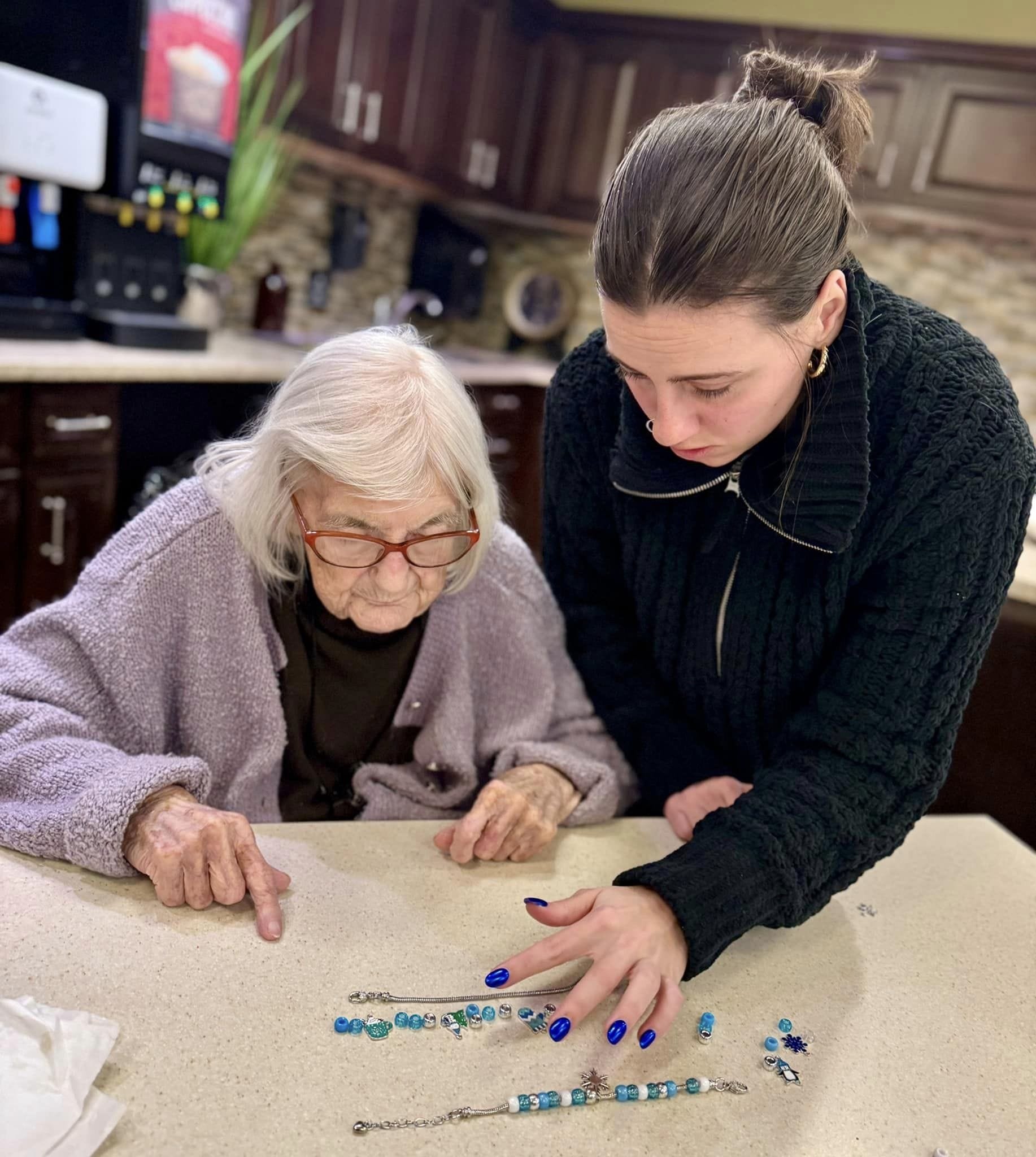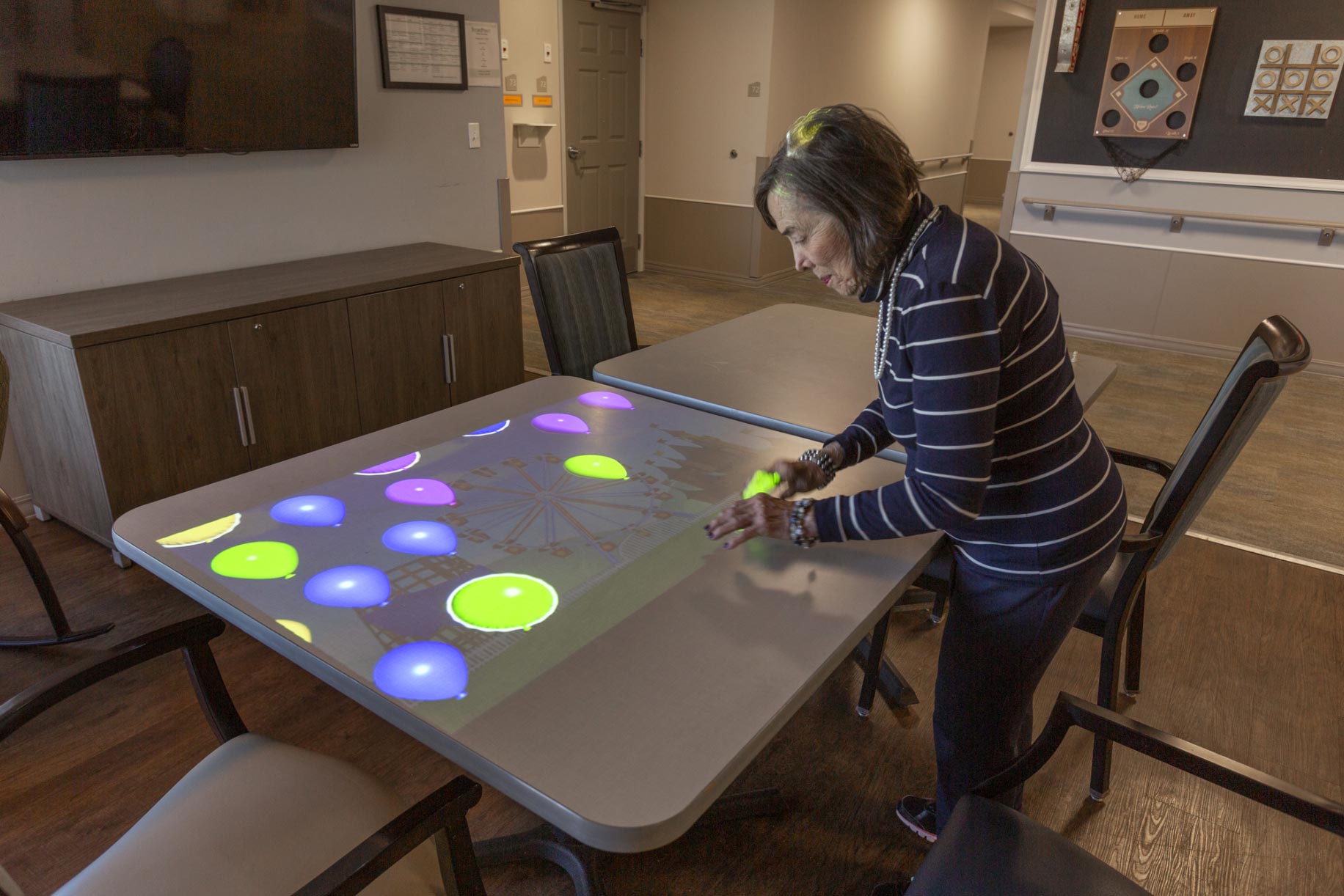Focused Memory Assistance and Care Options with Alzheimers Care Charlotte
Focused Memory Assistance and Care Options with Alzheimers Care Charlotte
Blog Article
Developing a Safe and Helpful Setting for Alzheimer's Care
The creation of a safe and encouraging setting for individuals with Alzheimer's is paramount in improving their quality of life. This includes not only physical adjustments within the home, such as lessening risks and including acquainted aspects, but additionally the implementation of organized routines and meaningful tasks that satisfy their cognitive demands. Furthermore, recognizing the mental and psychological dimensions of treatment can significantly affect their complacency and connection. Discovering these complex methods can expose critical insights into reliable caregiving strategies that may transform the everyday experiences of both caretakers and patients.
Understanding Alzheimer's Requirements
Regularly, individuals with Alzheimer's condition display a range of requirements that need tailored approaches to care. As the condition progresses, cognitive decrease shows up in different means, influencing memory, thinking, and even the capability to do daily activities. Caregivers should recognize these developing needs to supply proper support and make sure a better of life for those influenced.
One important element of recognizing Alzheimer's needs is recognizing the relevance of regular and knowledge. Individuals typically locate comfort in well established patterns, which can minimize anxiousness and complication. Caregivers must make every effort to develop structured daily routines that incorporate meaningful activities straightened with the person's rate of interests and capabilities.
Additionally, reliable interaction is extremely important. Individuals with Alzheimer's may struggle to reveal themselves or comprehend complicated language. Caretakers need to utilize basic, clear language, use non-verbal hints, and method active listening to foster understanding and link.
Finally, psychological and social requirements can not be neglected. Providing chances for social interaction and preserving connections can substantially boost emotional well-being. Caregivers ought to urge engagement in area tasks or family members gatherings, advertising a feeling of belonging and objective. Understanding these varied requirements is necessary for creating a helpful care setting.
Creating a Safe Home
Producing a risk-free home for individuals with Alzheimer's disease is essential to promoting and minimizing dangers self-reliance. The design of the living space need to prioritize safety while permitting personal comfort. Get rid of prospective risks such as loosened carpets, sharp things, and clutter, which can lead to falls or mishaps. Make sure that paths are clear and well-lit, as appropriate lighting lowers disorientation and enhances mobility.
Incorporating adaptive functions is also critical. Install grab bars in shower rooms and near stairways, and consider utilizing non-slip floor coverings in damp areas. In addition, making use of contrasting shades for floorings and walls can help in distinguishing areas, aiding to minimize confusion.
Knowledge is crucial for individuals with Alzheimer's. Individualizing the setting with familiar objects and photographs can enhance a feeling of belonging and safety and security - Alzheimers Care Charlotte. It is likewise beneficial to have an assigned location for daily tasks, such as reading or crafting, which can supply framework to their day
Finally, implementing a safe and secure exterior space enables secure exploration while getting in touch with nature. By attentively developing the home setting, caregivers can considerably improve the top quality of life for people living with Alzheimer's illness.
Enhancing Communication Abilities

Non-verbal communication, consisting of facial expressions, gestures, and touch, plays an essential function in communicating compassion and understanding. Keeping eye contact and a tranquil demeanor can enhance the convenience degree of the individual, advertising a feeling of safety and security.
Additionally, it is essential to exercise active listening. This includes being totally present, showing persistence, and enabling the person to express themselves without disruption. Rep may be needed; caregivers should be prepared to take another look at concerns or subjects, as people with Alzheimer's might battle with memory recall.
Furthermore, using visual help or cues, such as pictures or acquainted things, can promote acknowledgment and interaction. Inevitably, enhancing interaction abilities is concerning building trust fund and developing a setting where people really feel heard, valued, and recognized, consequently enriching their top quality of life.
Encouraging Social Communication
Promoting significant social interactions can substantially boost the health of individuals with Alzheimer's condition. Involving with others not only aids combat feelings of isolation but additionally stimulates cognitive function and psychological health. Structured social activities, such as group arts, crafts and video games, or songs treatment, produce possibilities for citizens to get in touch with peers and caregivers, which can lead to boosted mood and decreased stress and anxiety.
Producing a welcoming website link atmosphere that motivates socialization is essential. This can be attained by preparing public rooms that facilitate communication, such as cozy seating locations or activity areas. In addition, incorporating culturally appropriate and familiar activities can spark memories and urge participation, permitting individuals with Alzheimer's to feel even more linked to their past experiences.
Additionally, caregivers ought to be educated to identify and promote social involvement amongst residents. By focusing on social communication, we can considerably enrich the lives of those living with Alzheimer's, promoting a feeling of community and belonging.
Supporting Caregiver Wellness

To sustain caretakers, companies must offer routine training and educational resources to boost their understanding of Alzheimer's condition and caregiving techniques. Offering accessibility to reprieve care solutions allows caretakers to take required breaks, lowering stress and exhaustion - Alzheimers Care Charlotte. Furthermore, cultivating a community with assistance teams can facilitate psychological sharing and the exchange of sensible guidance among caretakers, creating a network of common support
Mental health and wellness sources, such as counseling solutions, can also be important in dealing with the emotional toll caregiving can take. By focusing on caretaker health, we produce a more lasting caregiving atmosphere that not just profits the caregivers themselves however additionally boosts the overall top quality of care received by individuals with Alzheimer's. Eventually, supporting caretakers is an important part in fostering a why not check here compassionate and effective treatment setup.
Verdict
In final thought, the production of a encouraging and risk-free setting for people with Alzheimer's is important to improving their lifestyle. By focusing on security through thoughtful layout, cultivating emotional well-being with acquainted elements, and promoting involvement with structured regimens, caregivers can substantially affect the total experience of those influenced by this condition. Additionally, supporting caregiver health is vital, as it ultimately adds to a more efficient and caring treatment environment.
Repeating may be essential; caretakers ought to be prepared to take another look at topics or questions, as individuals with Alzheimer's might struggle with memory recall.

Report this page